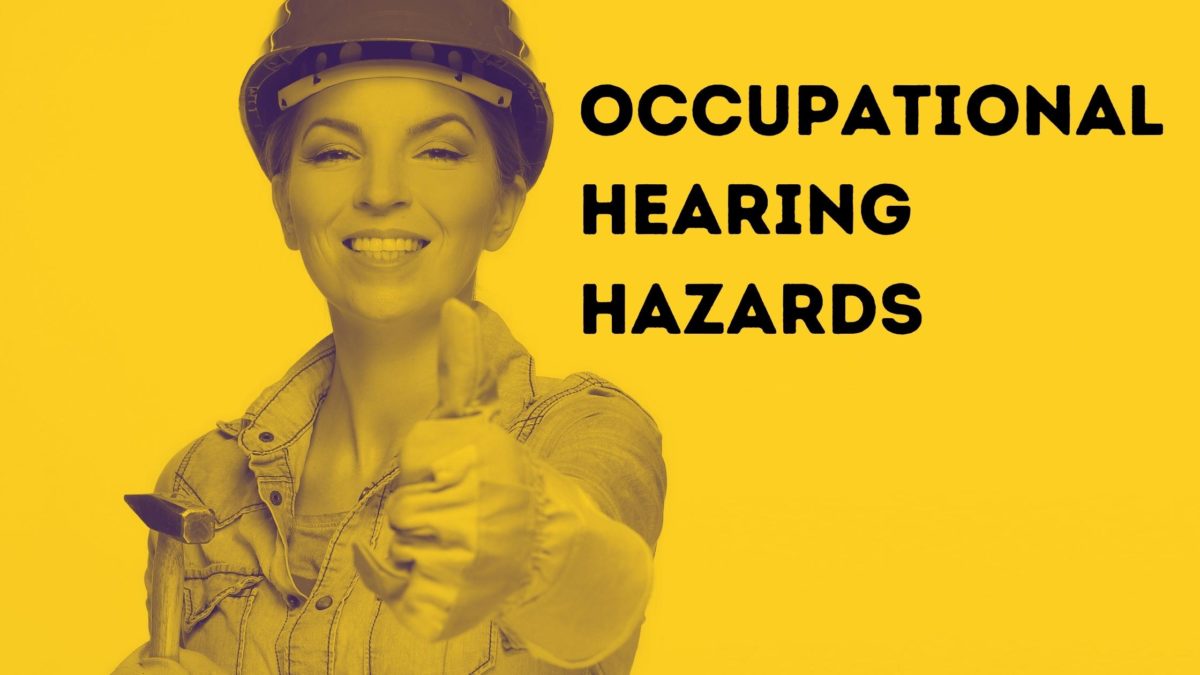Did you know that roughly 22 million Americans risk their hearing health every year on noisy job sites? Dangerously loud working conditions are very common in workplaces around the country. These loud noises can cause noise-induced hearing loss and tinnitus. Understanding occupational hearing hazards and wearing appropriate hearing protection is the best thing you can do for your hearing health.
Does Your Workplace Have Hearing Hazards?
Loud noise permeates many workplaces. It can be annoying, but it’s also a health and safety hazard. Some workplaces that are especially loud include:
- Factories
- Manufacturing facilities
- Construction sites
- Farms
- Airports
- Concert venues
- Sports stadiums
- Bars and restaurants
These are only a few of the noisy job sites you may encounter. Should your workplace be on the list?
How Loud is Your Workplace?
If you’re wondering about the noise levels at your workplace, consider how loud it is on a daily basis. Do sounds seem extremely loud? Is there heavy machinery running? Do you have to yell when talking to coworkers?
Here are some signs that your workplace is hazardous to your hearing:
- You hear a ringing or buzzing sound in your ears when you leave work.
- Sounds seem muffled when you leave work.
- Your ears hurt when you leave work.
These are some of the signs that your workplace is too loud. To find out exactly how loud your workplace is, you can download a free decibel reading on your phone. This app will give you a decibel reading. Any noise louder than 85 decibels is an occupational hearing hazard.
What About OSHA Standards?
Did you know that the Occupational Safety and Health Administration (OSHA) has strict guidelines about hearing hazards? If your work exposes you to sounds louder than 85 decibels, your employer has a responsibility to protect your health.
This can include investing in quieter equipment, installing barriers between noisy areas and the rest of the job site, or providing hearing protection and training to reduce the risk of hearing loss.
Proper Hearing Protection
If your job includes occupational hearing hazards, the best thing you can do is wear proper hearing protection on the job. Hearing loss is permanent, so protecting your ears is extremely important. Do you have to yell to have a conversation with your coworkers? If your coworker is standing beside you, and you have to shout, you should both be wearing hearing protection.
Earplugs
One of the most common kinds of hearing protection is earplugs. These soft foam earplugs are lightweight, inexpensive, and easy to use. To properly insert earplugs, squeeze the earplug, then place it in your ear canal. As it expands, it will block your ear canal, reducing the volume of the sounds around you.
Earplugs are recommended for moderately loud noise. We don’t recommend earplugs for jobs where you have to take your earplugs in and out often, or your hands get dirty.
Earmuffs
Earmuffs provide more heavy-duty protection. They form a seal around your entire ear, reducing the volume of sounds around you. They’re perfect for very loud workplaces, or anywhere where you need to take your hearing protection on and off throughout your shift.
Digital Hearing Protection
Another effective kind of earplugs is digital hearing protection. These devices are custom molded to your ear. Once fitted, they automatically analyze the sounds around you. Sounds that are a safe volume will reach your eardrum normally. But dangerously loud sounds will be digitally reduced before the sound waves reach your eardrum. This is the perfect hearing protection for anyone who needs to hear conversations and other quiet sounds while still protecting their ears from any sudden loud noise.
Do You Have Hearing Loss?
If you face occupational hearing hazards, it’s important that you get regular hearing tests to monitor your hearing health. You can also watch for the early signs of hearing loss, including:
- Having difficulty following conversations
- Having a hard time hearing if there’s background noise
- Asking people to repeat themselves
- Having difficulty determining where sounds are coming from
- Missing any soft sounds around you, like the hum of the fridge
Visit us for a hearing test and find out more about noise-induced hearing loss. We’ll also help you find the perfect hearing protection to suit your workplace and your hearing needs.

